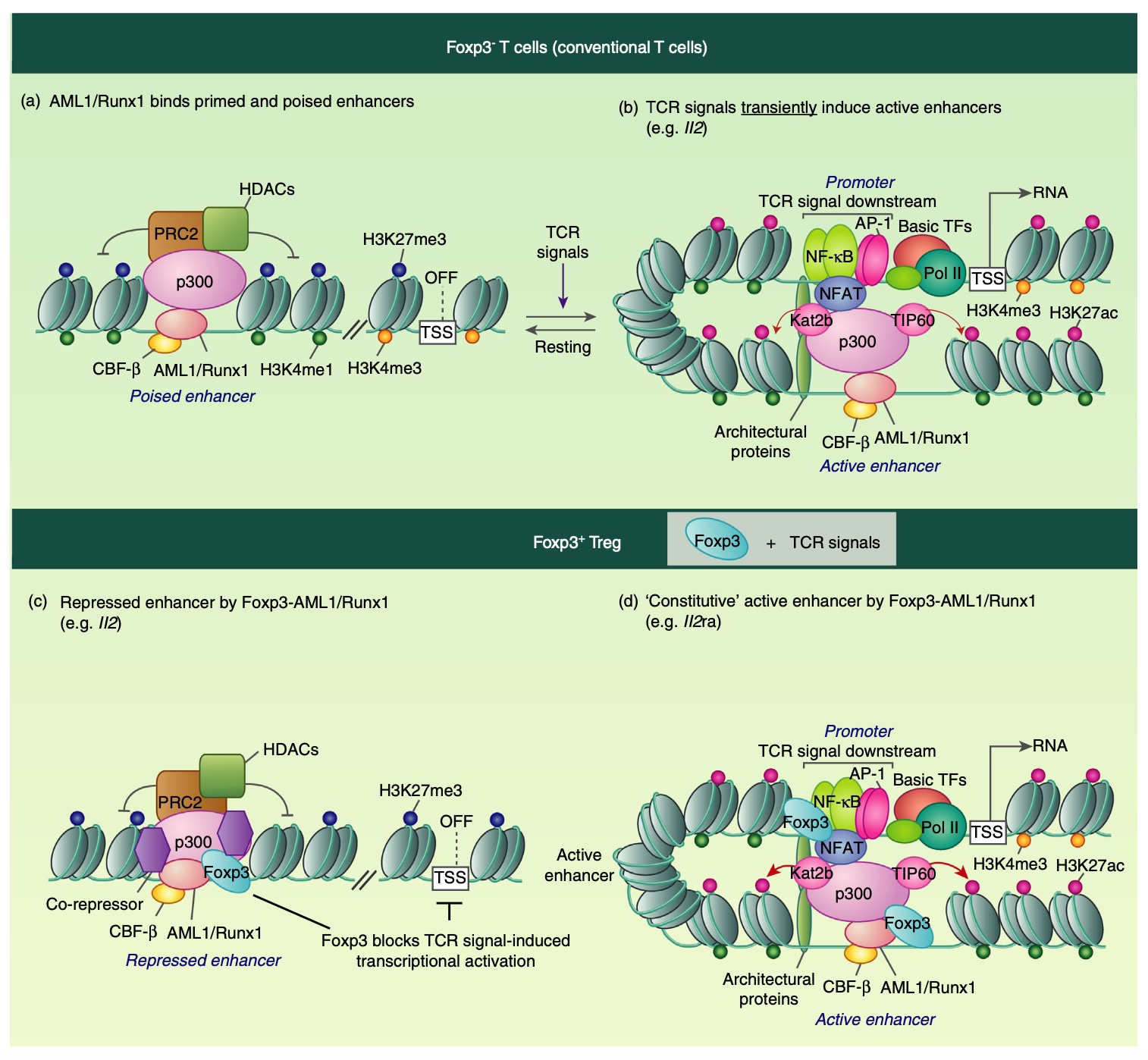decoding foxp3's code
introducing a new model for Foxp3 and Treg
This blog introduces a new model for Foxp3 and Treg proposed in Ono et al., 2020 (Ono, 2020).
Introduction:
Foxp3 is essential for the differentiation and function of regulatory T cells (Tregs). A deeper understanding of how Foxp3 operates is crucial for comprehending its role in T cell regulation.
Key Insights:
The paper posits that Foxp3 interacts with crucial proteins to execute its regulatory functions. Specifically, Foxp3 partners with transcription factors that are downstream of T cell receptor (TCR) signaling. This interaction is key to understanding how Tregs, which are characterized as ‘self-reactive,’ depend on TCR signaling for their survival and functionality. These concepts will be expanded upon in future discussions.
New Model:
Foxp3 provides ‘long-range’ negative feedback to T cell activities, transcending simple suppression of TCR signaling. Instead, it modifies the outcomes of downstream TCR signaling activities. In this context, a set of crucial Foxp3-interacting transcription factors, particularly Runx1, plays pivotal roles. Runx1 binds to essential genomic regions, thereby enabling Foxp3 to effectively modulate T cell functions, predominantly the suppressive actions of Tregs.

The exploration of these interactions offers significant insights at both the molecular and cellular levels regarding Foxp3’s function and the activation, differentiation, and function of Tregs.
Conclusion:
These findings support a model in which Foxp3 not only alters the basal state of T cell transcriptional regulation but also the consequences of TCR signaling within the nucleus. This capability is essential for T cells to adapt their baseline behavior and modify their functional outputs during activation.
The proposed model underscores the critical foundation of Treg and Foxp3, as encapsulated in the title “Control of Regulatory T‐cell Differentiation and Function by T‐Cell Receptor Signalling and Foxp3 Transcription Factor Complexes.”
References
2020
- Control of regulatory T-cell differentiation and function by T-cell receptor signalling and Foxp3 transcription factor complexesImmunology, May 2020